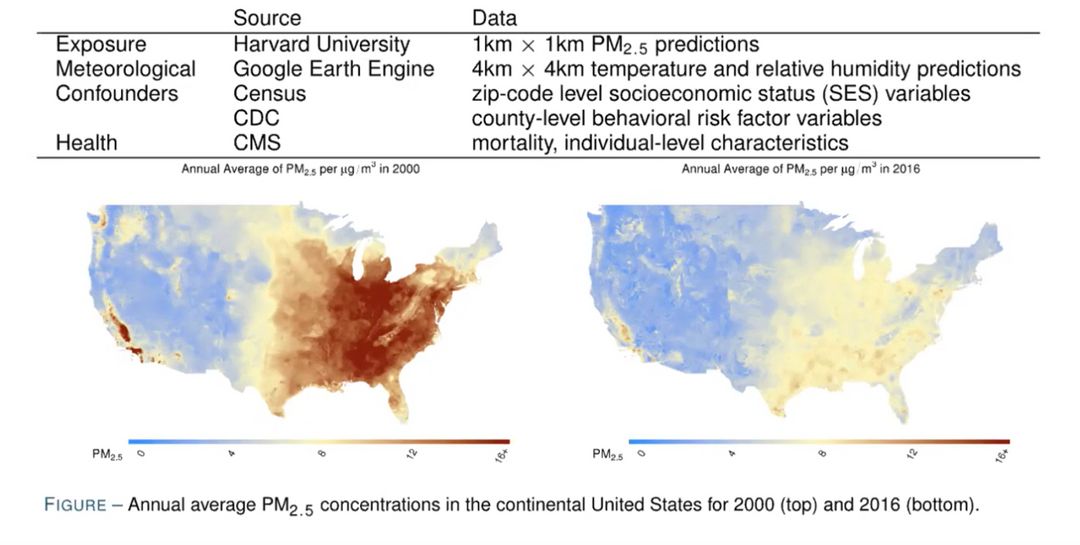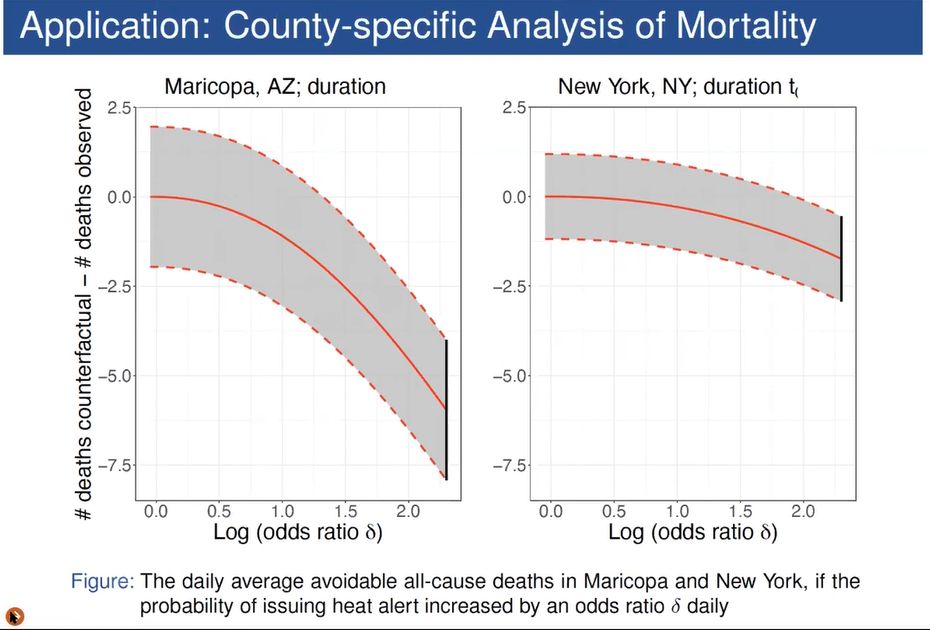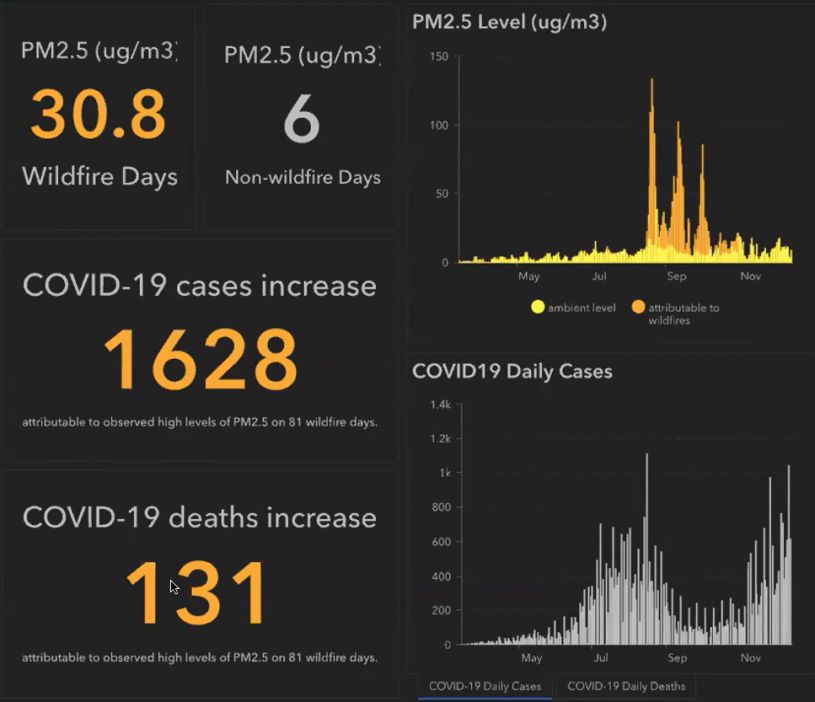Recording: Climate and Health: What can we do today
The current climate crisis is overwhelmingly viewed as solely an environmental problem, and not one that affects health. Before listening to this lecture I hadn't really considered climate change as a factor of worsening health. The fact of the matter is that climate change can drastically affect health and be a primary contributor to some health problems.
Francesca Dominici is a data scientist and she explains a lot of her methodology for analysing data and how she came to her conclusions. Research is a very important part in deciding on policies and actions that should be taken for health. Great care needs to be taken so that certain groups aren't under or over-represented. It is important to look at specific groups as well. In one of our earlier lectures about Maternal Health and mortality, Dr. Michelle Debbink talks about how overall the health of mothers have improved, but there are still people who have worse health outcomes and those tend to be people in minorities. Even though everyone may be improving, there still might be marginalized people having worse health outcomes.
Climate
The climate crisis does not affect health equally across different groups, but instead there are certain minorities that are affected significantly more.
There have been actions that have greatly decreased some outcomes of climate change. For example, by measuring fine particulate matter (specifically PM2.5 μg/m^3) in the early 2000s, it was found that PM2.5 was significantly higher in the south-west of the United States. Today, there is half as much. Dominici works towards combining this data with other plots, graphs, and research to reveal more insights about how different actions in different fields can affect health. Through other analysis, she found that by decreasing PM2.5 there is a 6%-7% decrease in mortality risk.

9:56 in the video
Heat Alerts
Through data analysis it was seen that heat alerts were not decreasing mortality or other injuries. By designing a hypothetical Stochastic intervention—costs vs outcomes—a researcher was able to predict that through more heat alerts there would be less mortality. However, different county's would have drastically different mortality rates.

22:35 in the video
This graph shows the importance of tailoring health interventions to specific groups. There are many different reasons why the mortality doesn't decrease as much in New York. Maybe it's inability to communicate the heat alert or lack of information. But what we can tell is that the same intervention that happens in Maricopa will not be as effective in New York.
COVID cases and Wildfire
Another topic Dominici mentioned is wildfires and how COVID cases change based on them. By keeping track of PM2.5 in the air based off of wildfires, shortly after a wildfire there would be an uptick in COVID cases. In Fresno alone (see image below), there was an increase of 1628 COVID cases attributable to wildfires/air-quality.

COVID cases in Fresno. 29:16 in the video
Climate and Social Determinants of Health
The research done with climate outcomes and health also show how holistic health can be. Differences in air quality can have drastic consequences and can be leverage with existing health disparities.
The book Caste mentions the benefits of living in a "world without caste". If we take this in the context of climate and environmental health, maintaining a caste system forces overall climate degradation. Members of the lower caste cannot afford items more helpful to the environment, they may not have as much knowledge for voting for helpful policies, and they aren't given opportunities to help the environment. Because of this, actions that harm the environment take place and affect everyone. The climate is not different for people of different castes, it is one unified system. Caste stratifies into unnecessary groups.
Another reading and lecture we had was about the Inn Between. Of course, promoting health and ensuring everyone has access to improve their health is the final goal, but small improvements in health can lower costs that hospitals pay. Similarly to the Heat Alert problem that Dominici talked about, providing some health care and earlier interventions can reduce costs for the health system. The Inn Between was one attempt and improving health in the elderly homeless.